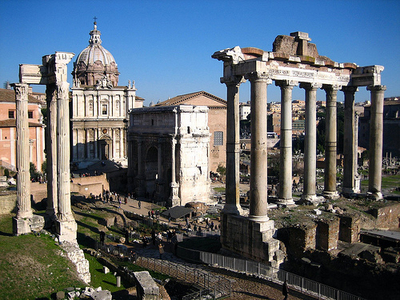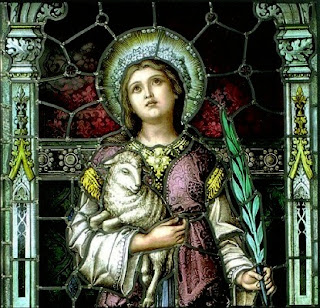How Does Chastity Relate to the Restoration of Catholic Culture?
I’m really excited about our lecture this evening at Fisher More College. I’m presenting a talk about my conversion to Catholicism, but also on the necessity of being in communion with Rome. In many ways, it’s a message about God’s special providence in choosing Rome as his spiritual capital on earth. In short, it’s a mini-version of my recently published book: The Eternal City: Rome & the Origins of Catholicism.
This relates to an article I posted entitled “Are We Catholics Willing to Die for the Sake of Virginity and Modesty?” The early saints and Church Fathers loved and revered virginity. Read the writings and letters of St Jerome. These early Fathers wrote poems and hymns to and for the great virgin martyrs. They saw true beauty and femininity in Saint Agatha, Saint Agnes, Saint Dorothy, Saint Anastasia, and others. The explosion of devotion toward St Philomena in the 19th century is another example of Catholic devotion for holy purity. Even more, the Church’s perennial devotion to the Blessed Virgin Mary is the highest expression of this Catholic sentiment.
The flip side is male purity.
Our Catholic forefathers believed that a man who could tame his sexual passions was truly honorable and heroic. This is why only celibate men were chosen for the priesthood. Their strong resolve communicated not effeminacy, but manly fortitude over their sexual passions. This power over the sexual appetite was transferred to evangelical ferver, missionary endeavors, and feats of penance. In fact, this produced a healthy spiritual imperialism in the Catholic Church. Moderns turn up their noses to the idea of “imperialism,” but the Christ of the cross who is the Prince of Peace is the Emperor of this Empire, what’s there to fear?
This spiritual imperialism of Christ was fully appreciated by our Christian forefathers. We, however, have forgotten the ancient feats of strength demonstrated by the monastics of old. For example, the penance of the Desert Fathers would have brought a sense of wonder even to the Roman Stoic Cato. We have forgotten the triumphant Roman martyrs, such as Saint Lawrence who would have kindled awe in the bravest Roman pagan warriors, such as Mucius Scaevolus. As the baptized have forgotten the noble army of martyrs that once fertilized the Eternal City with faith, so also have they lost esteem for Rome’s spiritual dignity.
I’m worried that Catholics have forgotten about our great dignity, not only as children of the Father, but as confirmed soldiers in the army of God. We Catholics have inherited the nobility of Rome – let’s live like it! When the Mexican martyrs shouted “Viva Cristo Rey!” before the firing squad fired their guns, they were proclaiming the imperial reign of Christ over Mexico. Why don’t we do that today? Will it take bullets flying toward our chests to inspire us to proclaim the social reign of Christ?
I’d like to hear from you on this: How do we restore a culture of Catholic nobility? If we can accomplish this, we can bring about a restoration. Perhaps it has something to do with re-establishing the virtues valued by the Apostles and Church Fathers: modesty, chastity, fortitude, devotion, and self-sacrifice. Where do we begin? I think it certainly has something to do with the liturgy, since the Holy Sacrifice of the Mass is the chief moment of catechesis in every week. Moreover, it also will require a re-thinking of Catholic education. What do you think? How do we re-instill these virtues and a sense of Catholic nobility.
Please leave a comment below.
Do you enjoy reading these posts by Dr. Taylor Marshall? Make it easier to receive daily posts. It’s free. Please click here to receive daily posts through e-mail. Privacy Guarantee: Your e-mail will never be shared with anyone. Please also explore Taylor’s books about Catholicism at amazon.com.
What to Watch Next
Muslims have been given a carpet for praying at the Vatican Apostolic Library. What does this signal...
Bishop Mark Beckman of Knoxville plans to cancel the celebration of the Traditional Latin Mass (TLM) at...
Pope Leo XIV published “Dilexi te,” his first apostolic exhortation at the Vatican yesterday “to all Christians...
SHOP THE TAYLOR MARSHALL STORE
Dive Deeper

GET CONFIDENT IN YOUR FAITH
Explore the fascinating world of Catholic teachings with Dr. Marshall. Together you’ll unpack the brilliant answers the Church gives to tough questions about the Faith. The best part: you go at your own pace. Start this exciting journey today.


 >
>





